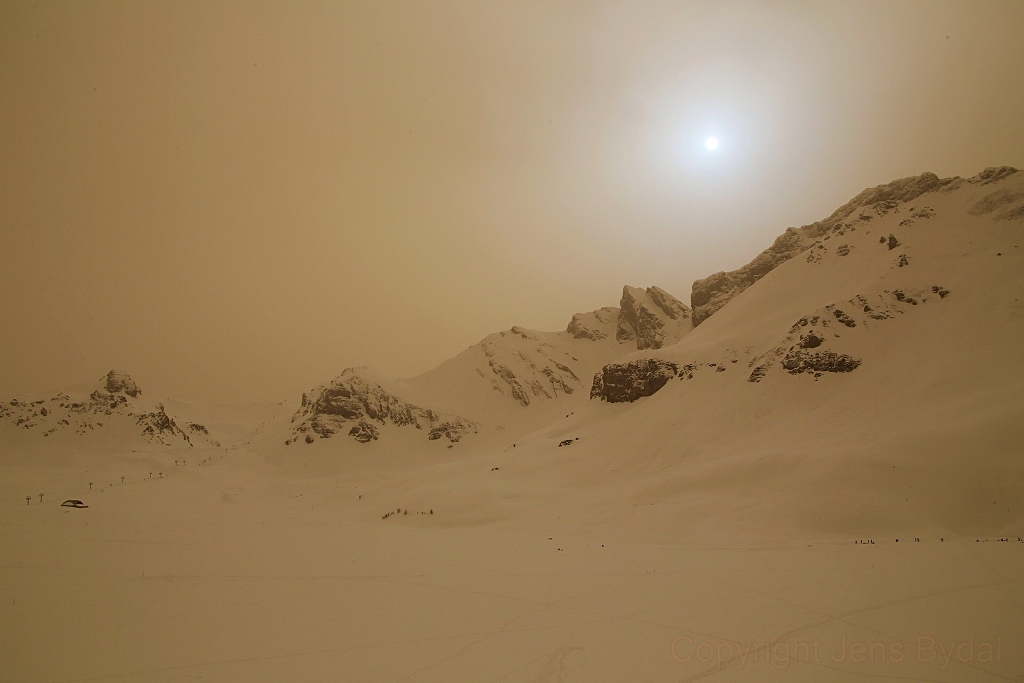瑞士阿尔卑斯山与类火星的天空
2021年02月18日
Swiss Alps, Martian Sky
Image Credit & Copyright: Jens Bydal
Explanation: Taken on February 6, this snowy mountain and skyscape was captured near Melchsee-Frutt, central Switzerland, planet Earth. The reddish daylight and blue tinted glow around the afternoon Sun are colors of the Martian sky, though. Of course both worlds have the same Sun. From Mars, the Sun looks only about half as bright and 2/3 the size compared to its appearance from Earth. Lofted from the surface of Mars, fine dust particles suspended in the thin Martian atmosphere are rich in the iron oxides that make the Red Planet red. They tend to absorb blue sunlight giving a red tinge to the Martian sky, while forward scattering still makes the light appear relatively bluish near the smaller, fainter Martian Sun. Normally Earth’s denser atmosphere strongly scatters blue light, making the terrestrial sky blue. But on February 6 a huge cloud of dust blown across the Mediterranean from the Sahara desert reached the Swiss Alps, dimming the Sun and lending that Alpine afternoon the colors of the Martian sky. By the next day, only the snow was left covered with reddish dust.
News from Mars: NASA Perseverance Coverage
Tomorrow’s picture: pixels from space
瑞士阿尔卑斯山与类火星的天空
影像提供与版权: Jens Bydal
说明: 这幅2月6日摄于地球瑞士中部梅尔切斯-弗鲁特山区的影像,记录了当地的雪峰和上方的天空。一般而言,泛红的白画天空和周围环着蓝晕的过午太阳,是火星天空常见的色泽。诚然这二颗行星上见到同一颗太阳,不过在火星上,太阳的亮度减半,视张角只有地球所见的2/3。此外,漂浮在火星大气中的尘埃微粒富含氧化铁,因而把火星渲染成红色的行星。火星浮尘会吸收蓝光,让火星天空带着泛红的色泽,而前向散射则让较小较暗的火星太阳之周围,环着偏蓝的光晕。地球较致密的大气,通常会强烈散射蓝光,造就地球的蓝天。然而在 2月6日,一大团吹过地中海的撒哈拉沙漠之沙尘,抵达瑞士阿尔卑斯山,除了替太阳减光之外,更为高山的下午天空带来火星的色泽。到了隔天,后续的景观只剩染了红尘的白雪。
火星快讯:NASA毅力号着陆实况
明日的图片: pixels from space

